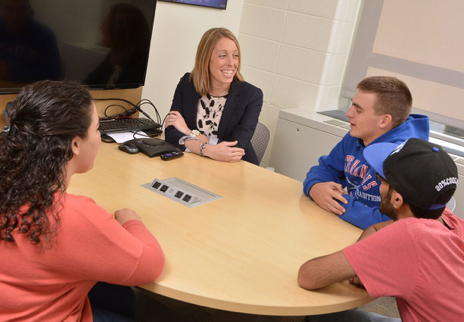Blog Entries
Transferable Skills in the Performing Arts: In and Out of the Classroom
Each year I ask my senior dance seminar class to write a résumé.
We go over how to list their performance and choreography credits, teaching experience, and other nuances relating to the field of dance. We then discuss who will be evaluating this type of résumé, and how those in the profession will interpret this information to understand your qualifications.
I then pose the question; how would you translate these experiences for someone outside of dance or the arts?
The class then engages in a deeper look at what it actually entails to create art. Below are just a few skills that creatives can tout to people both inside and outside of the creative field.
- Dedication and hard work. In addition to regular class hours, performers devote hours getting their ducks in a row for rehearsals, film shoots, or informal showings.
- Leadership and Organization. When serving as a choreographer, you are managing people, coordinating spaces and resources through studio reservations, practicing time management at each rehearsal, and of course creating a piece of artistic expression.
- Communication. It takes strong interpersonal skills to be a part of the creative process. As students within the Division of Performing Arts, you are constantly collaborating with fellow artists to bring your visions to life.
Reflecting on the human experience is what we do in each department, and in order to do so one must develop a host of skills both inside and outside of the classroom.
Too often students narrow their idea of learning to only what is being taught in the classroom during their undergraduate years, and they assume that the lessons they learn are only applicable to their own career or major. And yes, you are certainly learning specific skills from the course work within your major that are necessary to succeed in your profession and will help distinguish you from other applicants, but don’t forget the transferable skills you have acquired along the way. As shown in the list above, many of a performer’s skills and experienced are gained through extracurricular activities and personal projects.
Reaching out to professors and artistic staff to reserve space, asking for clarification on a policy or assignment, working within a production timeline, volunteering to be a part of a Junior Directors of America (JDA) or other student project, work-study jobs, these too are learning experiences which help you develop your voice as a professional. It is important that you take stock in what you have learned within the classroom and also as a member of the division and communicate your full experience at DeSales to employers.
It is never too early to start to think about how you are growing as an artist and person and begin to translate these to your résumé, cover letter, or LinkedIn profile. As a performing arts major, it is important that you recognize how your training as an artist prepares you not only to enter the profession of your specific medium, but prepares you to be a whole person, capable of navigating life with a deeper appreciation for the human experience and the potential to be a valuable member of a workplace or community.


Follow Career Development Center on Social
CDC on Facebook
Stay up to date with Career Development Center's posts on Facebook.
CDC on LinkedIn
See the latest posts on LinkedIn by the Career Development Center. Follow them on LinkedIn.
CDC on Instagram
See the latest posts on Instagram by Career Development Center.




